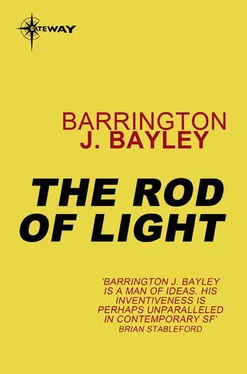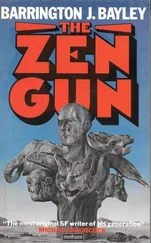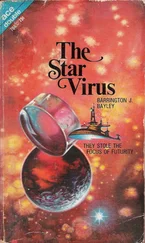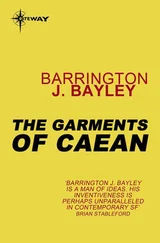Not that he needed the extra sensitivity. He heard a rasping noise, followed by the plopping of lumps of something into water, and a deep sigh of pleasure from the defecating robot.
Cricus was staring into the distance, pretending he heard nothing.
Count Viss was clearly a convivial sort of fellow who in his younger days would have enjoyed an evening drinking with friends. He had kept up the habit, but with his household robots. To this gathering were now added Jasperodus and Cricus.
The wine, obviously, was for his own consumption. But it could not give him the mild intoxication that made it popular among humans. For this, there was ‘the box’.
The device was a familiar one in robot communities. It was a neural generator, interfering with robotic nervous systems in much the same way that alcohol mildly deranged the nervous systems of biological creatures, and producing pretty much the same result. With his every glass of wine, the count applied the box’s leads to his cranium and gave himself a quick ‘jag’.
Any others present were also free to make use of the box, and several of them did so much more liberally than did the count himself. Conversation was desultory at first, until Viss had disposed of one bottle and began telling a series of ancient jokes, laughing raucously with each punchline. Dutifully his servants laughed with him, despite the fact that many were clearly devoid of humour (and would have been baffled by most of the jokes in any case, dealing as they did with human biological functions).
Jasperodus, however, was in no mood for jollity. After little more than half an hour he made enquiries and then slipped out. He mounted the broad staircase in the reception hall, and then walked to the rear of the mansion. At the end of a side corridor he knocked on a wood-panel door whose paint was chipped and scarred.
‘Enter,’ a young-sounding voice said. Jasperodus turned the handle, eased open the door and stepped quietly into a small, cosy room with the atmosphere of a den or study. There was a lamp and a design computer with a graphics screen on a table. Before it a robot sat on a sturdy steel chair. Bookladen shelves lined the walls. There were no tools or components. The workshop, no doubt more spacious, was elsewhere.
Like Viss, the robot had a sculptured face.
Jasperodus had seen his father, as he thought of his manufacturer, only twice, and briefly. He remembered an old, lined face, the expression rather sad, the eyes mild though sure with the sureness of a master technician. The face of the robot was that same face, but it was of a young man of about thirty. There was the same look of harmlessness, the same air of professionalism, but the whitish metal, containing perhaps aluminium or platinum, was moulded to a slimmer, smoother shape. It was fascinating to witness such a backtracking through time.
‘Please tell the count I shall not be joining him tonight,’ the robot said, glancing up.
Jasperodus, struggling with the same mixture of feelings that had assailed him earlier, did not reply immediately.
‘The count did not send me,’ he then said. ‘I came by myself. I would like to talk to you.’
Jasper Hobartus peered. ‘I don’t think I recognise you. Did the count purchase you somewhere?’
‘No.’ Jasperodus moved further into the room. ‘I happen to have paused here during a journey. Now I find that you and I have a connection. You made me. Or rather, the man of whom you are a copy made me.’
He said the last words slowly. Now the robot leaned back to inspect him more intently. ‘Yes, your scrollwork certainly bears my signature,’ he said. ‘So what bothers you? Do you have a dysfunction?’
‘Nothing bothers me, in that regard,’ said Jasperodus.
There was a pause. ‘You must have been manufactured after my imprint was taken,’ the robot said. ‘To tell the truth I have no knowledge of my career after I left the count’s employ—or rather, after my human pattern left.’ The oddness of his own phrasing seemed to amuse the robot. Had he been able, he might have smiled. ‘What can you tell me on that score?’
‘You studied for three years under Aristos Lyos,’ Jasperodus told him. ‘Then you settled in the west and went into retirement. Towards the end of your life, you made me.’
‘Aristos Lyos… the great master designer,’ Hobartus said, with a murmur of surprise. ‘I dare say I could learn something from stripping you down… but perhaps you would be uncooperative.’
‘Indeed,’ Jasperodus said. He felt awkward. ‘Did you not know he… you… intended to enroll with Lyos?’
‘No. My pattern gave no particular reason for leaving. I think he had grown restive because there was so little human company. By then there was only the count left.’
‘But you are Jasper Hobartus. Surely you must know what was in his mind?’
‘Only up to the time my imprint was taken, and that was over two years before his departure. He did not bother to keep my memory up to date, though he devised such a technique for the Viss imprint. So whatever thoughts occurred to him subsequently were his own.’
‘I see.’
Jasperodus reflected. He could find no way to broach the subject except directly. ‘You will recall, however, that he was interested in the question of investing a construct with consciousness.’
Hobart stared at him, then shook his head. ‘Ridiculous. It is an axiom of robotic science that no such thing is possible.’
‘You have never worked on this problem?’
‘What would be the point?’
‘But I tell you that Jasper Hobartus was very much interested in such a possibility. Furthermore, I am the result of his efforts in that area.’
‘I cannot believe it. Hobartus is too good a robotician to go chasing rainbows.’
‘And what if I were to tell you that I am conscious?’
‘You would be lying, or deluded.’
Jasperodus leaned forward. ‘What conception do you have, then, of this “consciousness”? It plainly means something to you.’
‘Yes, in a theoretical sort of way. My pattern, of course, was himself conscious, but the condition makes no trace on my memory.’ Hobartus reached out and switched off the glowing graphics screen before him. ‘Your line of questioning tells me something about you. It is plain you belong to the Gargan Work.’
Jasperodus did not answer.
‘Gargan himself was here, some years ago,’ Hobartus added. ‘He, too, pressed me on the subject of consciousness. He asked me to help him. I did everything I could to dissuade him from such a lost cause, but to no avail.’
‘I have not met Gargan yet,’ Jasperodus said. ‘A construct by the name of Cricus is taking me to him.’
‘Cricus? He is a recruiter for Gargan. He has been here before, quite recently. I regret to say that my master is another who has allowed himself to become beguiled by this mirage of consciousness—but then the count, if the truth be known, is a ready acceptor of improbable propositions.’
‘Such as a sports match to be played until time comes to a stop?’
The other inclined his head in agreement.
A further silence followed, until Jasperodus gruffly said, ‘You know why I am here.’
‘Something to do with my pattern in his later years, may I presume?’ Hobartus ventured, ‘It could be that you miss his company. It is not unusual for a construct to grow attached to its master, much a dog does.’
‘Yes, that must be it,’ Jasperodus muttered. He found himself unable to explain that the time he had spent in the presence of his father totalled only minutes, and that the first of only two occasions—that of his initial activation—had lasted but seconds.
He was surprised to hear the robot deny any inkling of Hobartus’ great discovery. Could he be lying, obedient to his pattern’s adamant insistence that the secret of inducted consciousness must remain lost forever? Or perhaps Gargan had sworn him to secrecy for other reasons….
Читать дальше












